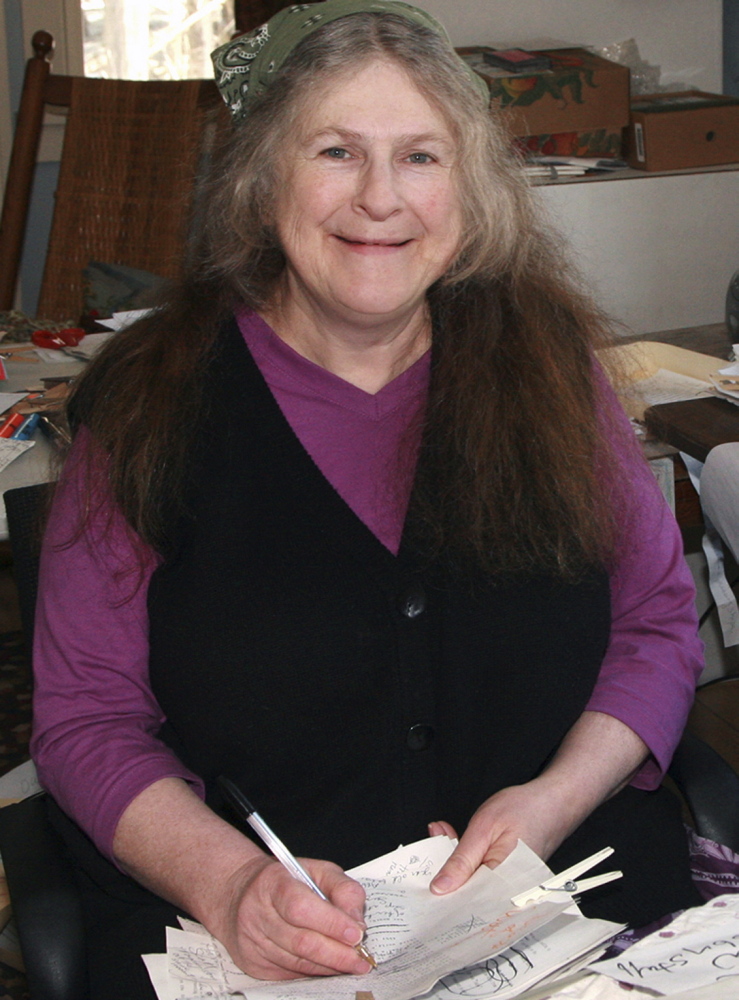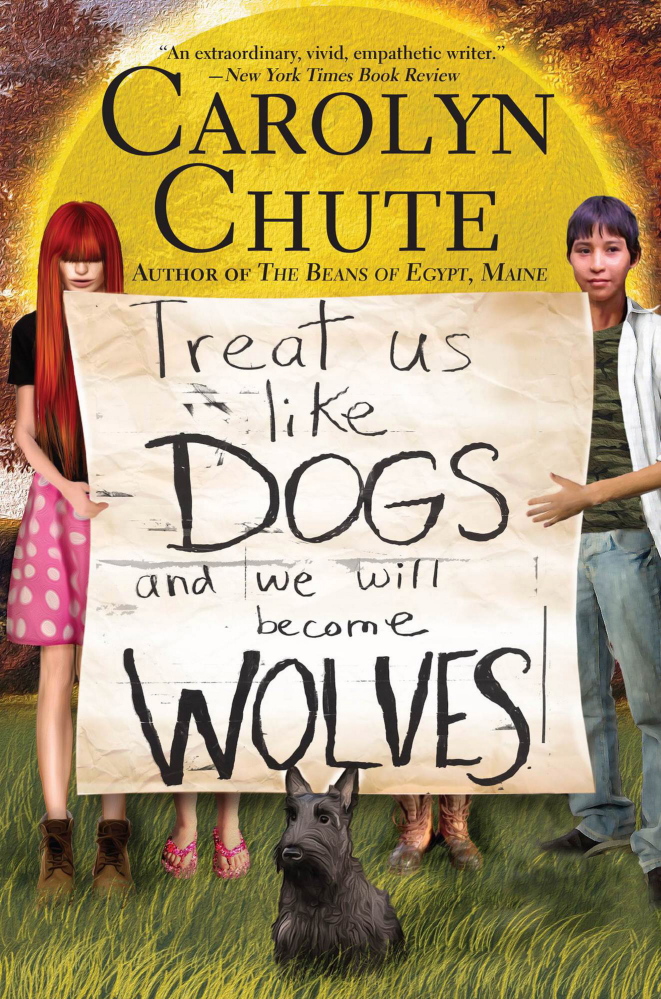Whether you agree with author Carolyn Chute’s positions or not, she is recognized as an icon in Maine. She has spent her career giving voice to poor, rural folk and the middle finger to big money, corporations, politicians and a host of other establishments that probably, to some degree, deserve it. Her latest book, “Treat Us Like Dogs and We Will Become Wolves,” does not deviate.
The book, however, is a disaster. The novel is an excruciating 671 pages followed by 11 pages of character biographies, which were more entertaining than the novel itself. There’s also a two-page glossary of icons (more on that later).
Like most of her other novels, “Treat Us Like Dogs” is set in the rural town that she made famous in her 1985 novel, “The Beans of Egypt, Maine.” It is the second in a series, the first part, “The School on Heart’s Content Road,” published in 2008.
The novels tell the story of a community called the Settlement, organized by Gordon St. Onge, a man who comes from a wealthy and well-positioned Portland family. St. Onge’s mother, who is in anguish over her son’s lifestyle, calls the members of her son’s community “antisocials, losers, and Aroostook Frenchies whose farms now belong to Irving (Oil).”
The members of the community believe in self-sustenance. They farm, sew and create what they need themselves or get necessities through trading. They use solar and wind power. Television is not allowed.
It is a sort of utopian society, with one glaring problem: St. Onge, sometimes called The Prophet, has weaknesses – sexual promiscuity, egoism and alcoholism – that threaten the whole community.
Chute delves into the repercussions of the leader’s behavior and how an essentially peaceful community becomes distorted by internal and external manipulations. It has all the makings of a powerful story but the execution doesn’t give it a chance.
The story, set in 1999, starts off narrated by Ivy Morelli, a young reporter with the local newspaper who receives numerous tips from anonymous callers making claims that the school on Heart’s Content Road is actually a cult run by St. Onge and that he has fathered a brood of children with multiple wives, some rumored to be underage. The tipsters claim child abuse, weapons stockpiling and devil worship, among other things.
The narrators change continuously as the novel progresses. There are so many narrators – some who make little sense, such as “the grays,” who are aliens studying the Earth and its inhabitants – that it’s hard to keep track. Worse, readers can’t really connect with them because they are essentially caricatures.
Each character or narrator has an icon. Morelli, the reporter, is designated with a pencil; the grays, a flying saucer. The icons are pure gimmickry.
The constant shifting of perspectives is jarring and bogs down the story rather than enriching it, which is too bad, because the basic story is fascinating: a look into the inner world of a sheltered community of people as it begins to unravel through exposure to the outside world and flaws of its leader. As preachy as the story can get, Chute does make an effort to demonstrate pros and cons.
Unfortunately, this compelling story is buried in claptrap and crippled by too little editing. A novel with half the length and a more streamlined narrative would have been more readable and had more impact.
Stephanie Bouchard is a freelance writer and editor living in Bath and is the author of the self-published book, “The Lap-Reluctant Cat.” Contact her at:
stephanie_bouchard@ myfairpoint.net
Twitter: @SBouchardme
Send questions/comments to the editors.




Comments are no longer available on this story